- Home
- Lisa Wingate
Word Gets Around Page 16
Word Gets Around Read online
Page 16
Amber continued on with some story about Pastor Harve’s barbecue, but I didn’t hear it. My mind had hopscotched to a screeching halt on the words Caney Creek Church and Pastor Harve. Suddenly I couldn’t breathe.
Ahead, Imagene pulled her van up to the tent, and members of the little African-American church on Caney Creek came out to help her unload coolers and pie boxes. The blood drained from my head and my body went cold. I found myself searching, almost frantically, for Pastor Harve, for his wife, Miss Beedie, for Teylina and Otis Charles. If they saw me here, how would they feel? What would they say if they walked out of the tent, on a perfectly beautiful, perfectly normal day, and saw the person who was responsible—as responsible as anyone—for the loss they had mourned for two years now? A son taken away from a mother and a father, a husband taken from his wife, a father taken from his son and daughter. Harvard Jr. never had the chance to see O.C. suit up with the UT football team. He missed watching Teylina cheer on the sidelines of the high school games. He wasn’t there to walk her across the field at homecoming, all because he came to block off the low-water crossing five minutes too late.
If they saw me here, they would be reminded of that night. …
“I need to … do some things … in the barn.” The words were cottony and rough in my throat. I didn’t wait for an answer—just turned and hurried off, feeling sick. Amber said something, but I couldn’t hear her, couldn’t process the words. Blood was pounding in my ears, and all I could do was keep walking—escaping, just like Lucky Strike, to the far side of the world.
Inside the barn, I leaned against the wall, closed my eyes, pressed a hand over the hollow place in my chest, tried to catch my breath. Calm down, calm down, I told myself. It’s been two years. …
But in my mind, it was yesterday. I could still see Harvard in his deputy’s uniform, a big man silhouetted against the headlights as he tied a rope to his waist and secured the other end to his cruiser.
He seemed to move in slow motion, my vision of him dimming behind a haze of pain. I was so cold, so tired.
He lifted a hand, shouted something I couldn’t hear, then he started toward me. I watched him come closer, his body rocking as he struggled against the current. In a flash of lightning, I saw his face, felt comfort, felt hope. I knew he wouldn’t stop until he’d gotten me out. Finally, I could hear him calling to me to hang on, hang on, just a little longer.
And then, in a swirl of water and a mass of debris, he was gone. I clung where I was, searching as the creek churned in the sheen of the cruiser’s glow. There was nothing. Nothing but a slice of water in the headlights, darkness beyond, rain, noise, thunder. A siren wailed out of view, its voice struggling to rise over the storm, growing closer until a fire truck flashed against the sky. …
Stop, I told myself. Stop. Tears filled my eyes as I tried to push the scene from my mind, to step back into the present. It’s over. You can’t go back and change it.
I knew it in my head, but my heart wouldn’t resign itself.
Footsteps on the gravel outside the barn pushed into my thoughts. I wiped my eyes, pinched color into my cheeks, and grabbed a halter off the wall, mentally preparing an excuse for skipping lunch. Oh, I wasn’t hungry. … I don’t feel so well. … I wanted to work with the horse while things were quiet. …
The footsteps continued past the barn door, and I heard a corral gate open, then close. Setting down the halter, I went outside. Nate was trotting across the pasture in his flip-flops. Curious, I slipped from the barn, moved silently through the gate to the small square corral beside the round pen, then stopped at the pasture fence. Nate paused beneath the big live oak tree. Bracing his hands on the droopy waistband of his shorts, he stood looking up into the tree or at the sky, I couldn’t tell which.
He turned and saw me there, and I was caught surprisingly off guard. Say something, Lauren. “Is … uhhh … everything all right?”
He nodded toward the tree. “Thought I’d get the Shaymeister’s hat down.” He smiled, his teeth straight and white against a California tan. “He keeps looking over here. I think he figures the horse might like him better with a cowboy hat.”
I laughed, thinking of how the hat had ended up in the tree. “Well, you know what they say—the hat makes the man.” At this point, anything was worth a try. “There’s probably a ladder in the barn.”
“Hey, no need.”
The next thing I knew Nate was climbing an overhanging branch, like Tarzan. I stood there playing Jane, dumbfounded as he made it to the trunk of the tree, shinnied to the other side, shook the branch that held the hat, and succeeded in knocking it free. As the cowboy hat drifted to the ground, Nate traversed the downward arch of the branch like a gymnast on a balance beam.
Finally, he jumped to the ground in a maneuver that looked fairly insane, but which he actually did very well.
“Previous circus experience?” I asked as he completed the rescue and joined me at the fence.
Chuckling, he dropped the hat over a post, then rested his elbows on the rail a few feet from me, shaking his head. “Nah, saw it on a TV western once.” He winked, and I felt something inside me quicken. “Don’t tell The Shay who got his hat down, all right? Wouldn’t want him to think I’m getting soft.”
“Your secret’s safe with me.” I met his gaze, wondering at the relationship between the two of them. They were more than just writer and actor, star and groupie. No matter what bill of goods he and Justin Shay were trying to sell my father and the rest of the Dailyians, there was more going on with this Horseman project than met the eye.
Chapter 12
Nathaniel Heath
Puggy was looking at me in a slightly discerning, slightly curious way that made me feel vaguely uncomfortable. In general, guys don’t like it when a woman looks at them like that—all right, maybe some sensitive, post-modern, in-touch-with-the-feminine-side guys do, but I don’t. Guys like me like girls like Mimi, who look at you with the dewy eyes of a Rodgers-and-Hammerstein starlet and bat long lashes as in, You’re my hero.
Sweep me away with your manly brilliance, big boy.
Lauren didn’t appear to be swept away. Considering that I’d just done a pretty impressive job of tree-climbing and rescued a stranded hat, that was a little disappointing. I liked her better early in the morning, when she was still a little groggy, distracted and off her game. Here in the horse corral, she was in her element, and unfortunately, I wasn’t. I had the feeling she was working me like she worked the horse, maneuvering toward some goal I wouldn’t figure out until I’d already stepped into the trap. She wasn’t just here to play horse trainer to the stars. She wanted something.
“Guess we should proceed on to lunch,” I said. “The food looks good over there. By now, the line should be winding down.” When I’d walked over with Justin a few minutes before, it was crowded under the tent with all the workers, plus a dozen or so volunteer servers from the little church next to Amber’s house, and their leader, Pastor Harve.
Justin hadn’t seemed to mind the crowd in the tent. He enjoyed the unqualified adoration of the masses as the workers offered handshakes and the serving ladies asked him to autograph napkins donated by the Hungry Hog. In between signing napkins, he used a pallet stack near the food table as a stage and proceeded to salute the hard work everyone was contributing, thank the church and Imagene Doll for the food, and introduce the crew of The Horseman, as if he were M. Harrison Dane himself. He referred to me as “Nathaniel Heath, who writes the screenplays that make all us actors look so good.”
The crowd cheered, and I felt like a sham. A big woman in a bright red muumuu pushed her way through the commotion and introduced herself as Miss Lulu. She told me she was the choir director at Caney Creek Church, and if I needed a choir in the movie, she could supply one. Then she bear-hugged me in a way that performed some sort of chiropractic miracle, because when she set me down, the tightness in my back was gone and I was an inch taller.
The old pasto
r was a friendly guy—hunched over with age yet with a deep, resonant voice that sounded like Mufasa from The Lion King. Thinking of The Lion King reminded me of the old movie and Broadway show tapes Mama Louise liked to play for the kids. That thought reminded me that she never let us touch a meal before she said grace over it. Realizing that made me wonder how many meals I’d eaten in the past twenty years that hadn’t been properly graced … three times a day, times three hundred and sixty-five days per year, times twenty years …
When Justin finished his speech, Pastor Harve blessed the upcoming movie production, Justin for bringing such a fine thing to Daily, Texas, and Justin’s friend (me) for taking time out from Hollywood to come here and write a film that would make a difference to Daily, the foster shelter, and probably the whole world. I had this weirdly guilty feeling that ruined my appetite, and when I opened my eyes, every one of those women in the serving line had Mama Louise’s face. They were all looking at me, their eyes whispering with silent voices, You’re a liar, Nate Heath. You know this ship is headed for an iceberg, and you’re just letting everyone party on until it hits. …
I saw Donetta and Imagene headed my way, and I got out of there. I decided to rescue Justin’s hat from the tree, on the vague theory that a random act of kindness might balance out twenty years of ungraced food and two days of misleading a bunch of very nice people into thinking their town would become famous.
It hadn’t occurred to me that Lauren might be hanging around the barn until she caught me planning to climb the hat tree. Interestingly, she wasn’t in any hurry to get to the food tent, either. She seemed more inclined to stand there talking.
“So, you’re missing lunch,” I observed, leaning on the fence next to The Shay’s newly rescued cowboy hat. “Better hurry. That construction crew looks like it can put away a bunch of barbecue.”
“I had … some things to do out here.”
The evasive answer intrigued me. Why, I couldn’t say. Maybe I wondered why she was hanging out at the barn instead of sharing in the festivities. “Anything I can help with?” Then again, maybe I was just hovering there because she was pretty … for a serious kind of girl.
She frowned at a bird skittering across the corral. I watched the way the light played on her skin, the way her eyelashes brushed her cheek. Her eyes flicked upward. They caught the light and turned the soft color of tarnished copper as she took me in. Then she turned to the bird again. “I don’t want to keep you from lunch.” For a nanosecond, I’d had the impression she was about to say something else.
“I’m scared to go back. I’m afraid Miss Lulu will hug me again.”
She laughed, and I liked the sound of it. She was beautiful when she smiled. It didn’t seem like she laughed enough. “You should see her at the Chamber of Commerce Christmas dance when they get out the eggnog and the mistletoe. Nobody’s safe.”
The mental image made me shudder. It occurred to me that even though Lauren seemed strangely uneasy here, she had history with these people. This bizarre, crazy, wildly friendly little town was her home. Watching her now, I wondered what that would be like. How would it feel to grow up in just one place—a place where everybody knew everything about everybody, where you knew who to avoid when somebody spiked the eggnog at the community Christmas shindig? “Thanks for the tip. If I happen by the Chamber of Commerce around Christmas, I’ll be sure to avoid the mistletoe.”
She gave me a surprised look. “Christmas?” she repeated, seeming incredulous. “You’ll be working on the screenplay that long? My father gave me the impression they might start filming any day.” She quirked an eyebrow in a way that reminded me of my high school principal, Mrs. Dickson. When Mrs. Dickson asked a question, you might as well have been strapped to a polygraph. She had a look that dared you to give anything but the truth.
For a girl who handled horses with such kid gloves, Lauren was pretty forthright when it came to people.
“Justin’s … ” a moron entertaining an impractical cowboy fantasy that will soon enough lose its luster. “ … making it sound a little more … automatic than it really is. Putting together a deal, selling the money men on it, attaching the big names, and casting the talent takes time.”
Lauren stiffened, her chin lifting. “So, this movie might never happen.” It wasn’t a question. It wasn’t a statement. It was more like … an accusation.
I felt like a witness on the stand—the reluctant kind of witness who has to be subpoenaed, and still doesn’t want to get involved. I was torn between being honest and just letting nature take its course. Who was I to say, anyway? In Hollywood, stupid projects got made all the time. “He has M. Harrison Dane coming to look it over.” That wasn’t really an answer, but it wasn’t a lie.
Lauren’s eyes widened. “The M. Harrison Dane? Coming here?”
“That’s what I’m told.”
“Wow.” For the first time, she seemed as starstruck as all the rest of them. Good job, Nate. Another boarding pass for the SS Disaster. Way to go, there, hero.
Drumming her fingers on the corral fence, Lauren watched Lucky Strike pace a twenty-foot trench in the ground—up and down the fence, over and over and over, like a prisoner who’d been in solitary so long he’d lost his mind.
“Think you can make The Shay into the horseman by next week?” I asked, happy to change the subject to something that didn’t require me to straddle a fault line of divided loyalty. “I got the hat down, that ought to help.” Grabbing the hat off the post, I flipped it over and dropped it onto my head, testing it out for size. The Shay’s head was bigger than most.
“I think we need to get him a goat,” Lauren remarked.
“A goat?” I said, trying to imagine what The Shay would do with a goat. I remembered goats from my childhood. My grandmother had one she milked to make goat cheese and soap. It climbed fences, ate flowers, stole the laundry from the line, and drank from slimy buckets of watery motor oil and never seemed to mind.
“For companionship,” Lauren explained, and I was even more confused than before. “To help socialize him. Right now, he’s socially handicapped. He doesn’t know how to relate to his own kind, so he’s acting out.”
“True enough.” She knew the Shay better than I thought. “I didn’t know a goat could cure that problem.” If so, we needed a whole herd of them in LA. They could replace Chihuahuas and sports cars for all the self-destructive show folk who couldn’t settle into a normal, healthy life. All this time, I’d thought leaving Hollywood for a cabin in the mountains was the cure, and all I really needed was a pair of goats—one for me and one for The Shay. We could both be home with our goats right now, socially well-adjusted and content. “I think it’s probably more than one goat can handle.”
Lauren frowned. “What is?”
“What is, what?”
“What’s more than one goat can handle?” She turned her attention fully to me, her lips twisting upward on one side and down on the other in a way that … well, made me think about her lips.
Suddenly, I couldn’t focus. “Socializing The Shay,” I muttered. “It’s more than a … one goat … job.” Every once in a while, you utter something, and it’s not until it goes from brain to mouth, then back in the ears that you realize how stupid it sounds. I felt like the long-haired seventh grade nerd who couldn’t string together ten coherent sounds in the presence of a cute girl.
Lauren’s eyes widened and began tearing up, until finally she slapped a hand over her mouth, and laughter burst through her fingers. After politely trying to choke it back, she let her head fall forward and gave in to it, sagging against the fence and gasping out an occasional word, “You … thought … I … didn’t … the goat … not … ”
I laughed along, so that maybe she’d think I was in on the joke. “I was just kidding.” It was a good attempt, but she knew. She could tell I’d been picturing The Shay driving down the Pacific Coast Highway with the wind in his hair and a goat strapped into the passenger seat.
&n
bsp; “The goat’s … goat’s … for the … for the horse,” Lauren coughed out between giggling and catching her breath. I’d almost caused her to choke to death, poor thing.
“I knew that,” I said, and she laughed harder. “I just thought, hey, if the goat’ll work for the horse, why not get two? It’ll be a new form of … ” I stopped right before rehab slipped off my tongue. The Shay and his rehab-of-the-week were a running joke—for the tabloids, for Randall and Marla, for everyone, actually. Even The Shay and I joked about it. Sometimes the things that are hard to face are easier to laugh about.
“Of what?” Lauren had a seriously annoying habit of picking up on the things I wasn’t saying.
“Training. Maybe it’ll help him … learn to be the horseman,” I said lamely.
She rolled her eyes, then wiped her index fingers along the lower lashes, drying what Mama Louise used to call laugh tears.
“Oh, wow, I haven’t laughed like that in a while.”
“Glad to be of service.” I was relieved to have refocused the conversation away from the film project and onto goats. “Nice job with the horse earlier, by the way. It’s an awesome thing to watch. Nice job with The Shay, too. He doesn’t usually let people tell him what to do.” I’d seen Justin be intractable to the point that he came within a whisper of collapsing multimillion-dollar productions. Between personality quirks, substance abuse, mood swings, partying with the crew, and general unreliability, it was only through sheer luck that we’d come out of Morocco with enough material to piece together into a film. It wasn’t a good film, but considering that we’d almost ended up working the brick pits in a Moroccan prison, even a film that went rapidly to DVD seemed like a victory.

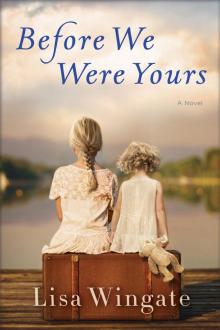 Before We Were Yours
Before We Were Yours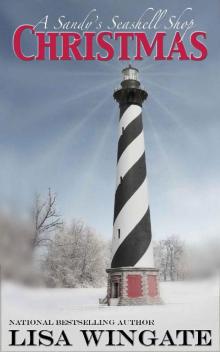 A Sandy’s Seashell Shop Christmas
A Sandy’s Seashell Shop Christmas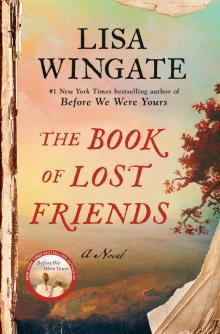 The Book of Lost Friends
The Book of Lost Friends Larkspur Cove
Larkspur Cove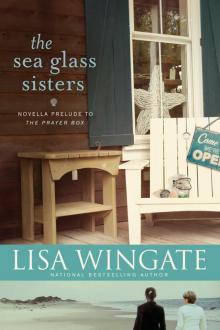 The Sea Glass Sisters
The Sea Glass Sisters The Language of Sycamores
The Language of Sycamores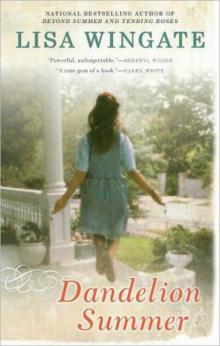 Dandelion Summer
Dandelion Summer Word Gets Around
Word Gets Around Beyond Summer
Beyond Summer Firefly Island
Firefly Island The Tidewater Sisters: Postlude to The Prayer Box
The Tidewater Sisters: Postlude to The Prayer Box Talk of the Town
Talk of the Town![Blue Sky Hill [01] A Month of Summer Read online](http://i1.bookreadfree.com/i1/03/29/blue_sky_hill_01_a_month_of_summer_preview.jpg) Blue Sky Hill [01] A Month of Summer
Blue Sky Hill [01] A Month of Summer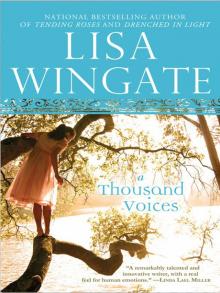 A Thousand Voices
A Thousand Voices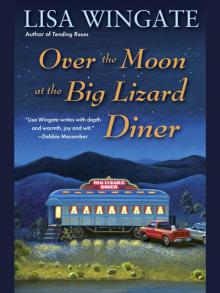 Over the Moon at the Big Lizard Diner
Over the Moon at the Big Lizard Diner Never Say Never
Never Say Never Good Hope Road
Good Hope Road The Summer Kitchen
The Summer Kitchen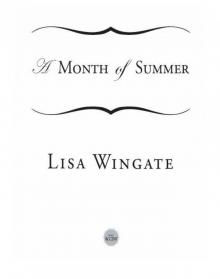 A Month of Summer
A Month of Summer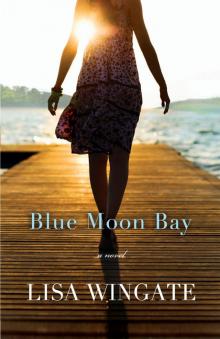 Blue Moon Bay
Blue Moon Bay Drenched in Light
Drenched in Light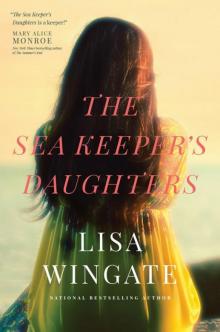 The Sea Keeper's Daughters
The Sea Keeper's Daughters